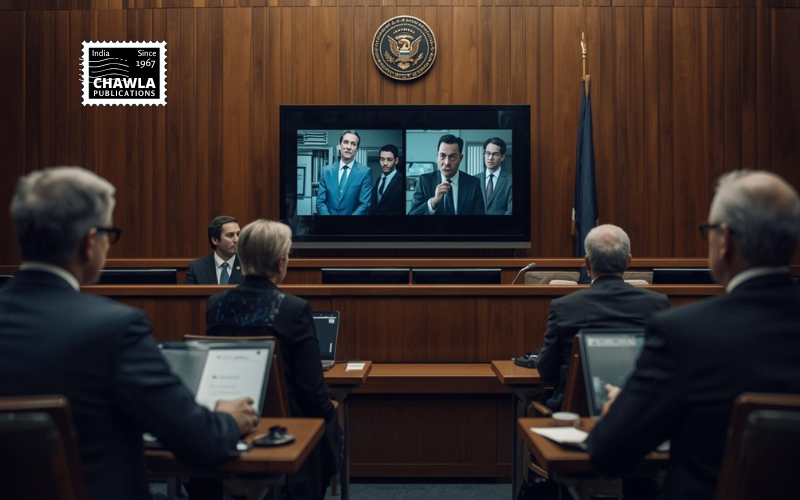Court Bars Defendants from Confronting Plaintiff's Witness with Unrevealed Video Clipping Due to Non-compliance with Procedural Norms
News Report:
In a significant ruling on April 21, 2025, the Punjab and Haryana High Court, presided over by Justice Ms. Nidhi Gupta, addressed the procedural intricacies in the commercial dispute between M/s Lamba Exports Pvt. Ltd. and M/s Kristan Auto. The Court denied the defendants' request to present a video clipping during the cross-examination of the plaintiff's witness, citing the failure to comply with procedural requirements under the Commercial Courts Act, 2015, and the Code of Civil Procedure (CPC).
The case, registered as CR-6805 of 2023, revolves around a suit filed by M/s Kristan Auto against M/s Lamba Exports Pvt. Ltd. for the recovery of substantial sums, including a security deposit of Rs.1.32 crore. M/s Kristan Auto alleged that despite vacating the leased premises, the security deposit was not refunded, prompting legal proceedings.
During the trial, the defendants sought to confront the plaintiff's witness, Nitish Bhardwaj, with a video clipping purportedly illustrating theft and damage to the property. However, objections were raised by the plaintiff's counsel, contending that the video was not disclosed in the defendants' written statement as required by the procedural norms.
Justice Gupta upheld the objection, emphasizing that the defendants failed to provide a Section 65B certificate under the Indian Evidence Act, which is essential for establishing the authenticity of electronic evidence. Furthermore, the defendants did not comply with Order XI Rule 6(3) of the CPC, which mandates a declaration on oath for electronic records forming part of disclosed evidence.
The Court reiterated the mandatory nature of the provisions under the Commercial Courts Act, designed to ensure the speedy and efficient resolution of commercial disputes. The defendants' reliance on undisclosed documents undermines the legislative intent, which prioritizes transparency and adherence to procedural standards in commercial litigation.
Additionally, the judgment referenced previous rulings, including the Supreme Court's decision in Arjun Panditrao Khotkar v. Kailash Kushanrao Gorantyal, which clarified the admissibility and procedural requirements for electronic evidence in legal proceedings.
The judgment highlighted that the defendants could not utilize the video clipping during cross-examination without prior disclosure or leave of the Court. Justice Gupta emphasized that the procedural lapses, including the absence of a Section 65B certificate and failure to disclose the video in the written statement, justified the exclusion of the evidence.
This ruling underscores the importance of compliance with procedural norms in commercial suits, particularly regarding the disclosure and admissibility of electronic evidence. The decision serves as a reminder to litigants to adhere strictly to the requirements set forth in the Commercial Courts Act and CPC, ensuring fair and efficient judicial processes in commercial disputes.




